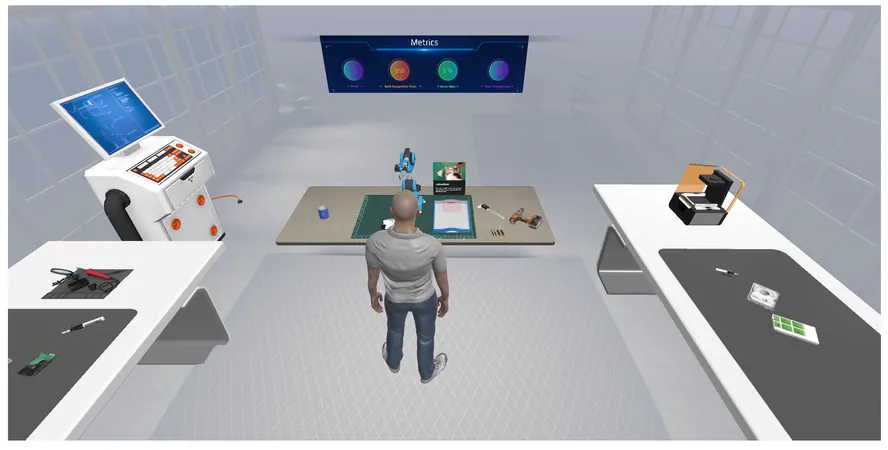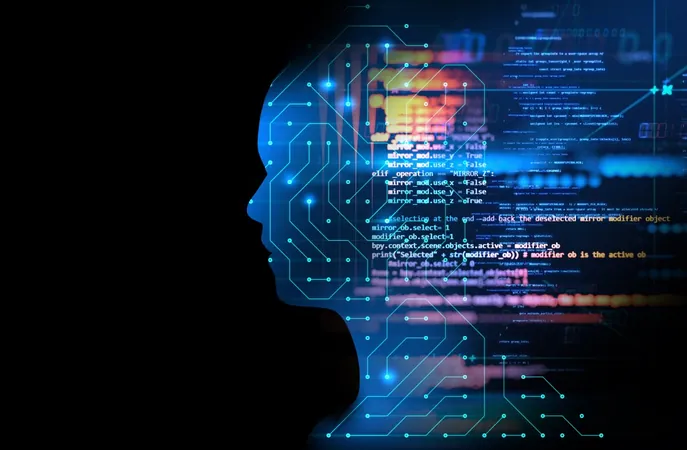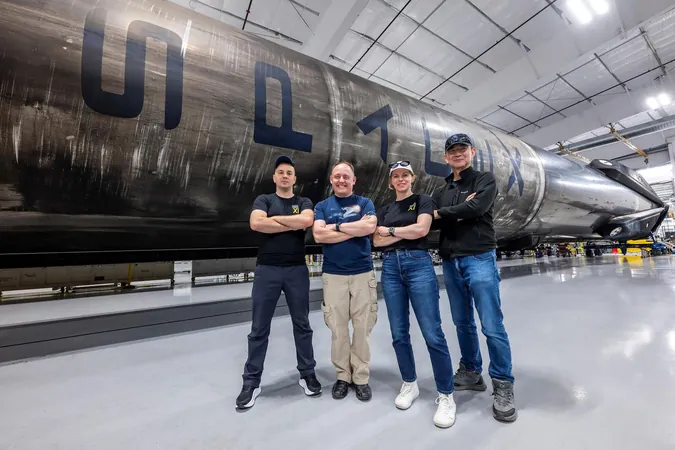
Revolutionizing Robot Training: How Virtual Reality is Transforming the Recycling Industry
2025-05-28
Author: Olivia
The Rise of Robotics in Recycling
The recycling industry is witnessing an unprecedented shift as robots become essential for automating tasks and simplifying complex operations. However, the challenge remains: how do we effectively train workers to collaborate with these high-tech machines?
Introducing VR Co-Lab: The Future of Training
A team of innovative researchers from the University of Georgia has unveiled a groundbreaking solution to this training dilemma: a state-of-the-art virtual reality space known as VR Co-Lab. This immersive environment aims to streamline the training process, making it both faster and more intuitive.
Tackling the Art of Disassembly
One pivotal task where robotic assistance comes into play is disassembly. This step is crucial for retrieving valuable materials from end-of-life electronics but is fraught with complexities. Unlike straightforward assembly, disassembly demands nuanced understanding, as noted by Beiwen Li, a leading researcher on the project. "Simply reversing the assembly process doesn't account for the myriad challenges involved in disassembly."
Hands-On Training Without the Risks
With VR Co-Lab, employees can engage in realistic training scenarios without the fear of damaging physical materials or injuring themselves. Donning a VR headset transports users to a virtual workstation, complete with the tools and robot assistants they'll encounter in the real world.
During training, workers systematically follow a carefully designed procedure for disassembling a hard disk. While the robot arm handles bulkier components, workers focus on more delicate tasks, like unscrewing tiny bolts. This means they can practice their skills while receiving immediate feedback on their performance, allowing for a smoother learning curve.
Enhancing Safety and Performance
A standout feature of the VR Co-Lab is its advanced body tracking capability. Utilizing the Meta Quest Pro, the system monitors a trainee's upper body movements, ensuring seamless interaction between the human and the machine. This innovation not only prevents dangerous collisions but also tailors the robot's movements to optimize teamwork.
Additionally, the program highlights potential hazards, fostering a safe learning atmosphere. It helps determine the robot arm's operational speed to avoid overwhelming the trainee.
A Bright Future for Workers and Robots
As robots continue to play a monumental role in the recycling sphere, Li emphasizes their potential to tackle disassembly tasks autonomously, alleviating the industry's labor shortages. "Disassembly is intricate and often requires human intervention alongside robots. Our motivation for developing this VR training system stems from this very need," Li stated.
Looking ahead, Li and his team are gearing up for extensive user testing, with hopes of adapting the VR Co-Lab for various skill levels and tasks beyond just hard disk disassembly. Their goal: to refine the training process and foster a future where humans and robots work in perfect harmony.









 Brasil (PT)
Brasil (PT)
 Canada (EN)
Canada (EN)
 Chile (ES)
Chile (ES)
 Česko (CS)
Česko (CS)
 대한민국 (KO)
대한민국 (KO)
 España (ES)
España (ES)
 France (FR)
France (FR)
 Hong Kong (EN)
Hong Kong (EN)
 Italia (IT)
Italia (IT)
 日本 (JA)
日本 (JA)
 Magyarország (HU)
Magyarország (HU)
 Norge (NO)
Norge (NO)
 Polska (PL)
Polska (PL)
 Schweiz (DE)
Schweiz (DE)
 Singapore (EN)
Singapore (EN)
 Sverige (SV)
Sverige (SV)
 Suomi (FI)
Suomi (FI)
 Türkiye (TR)
Türkiye (TR)
 الإمارات العربية المتحدة (AR)
الإمارات العربية المتحدة (AR)